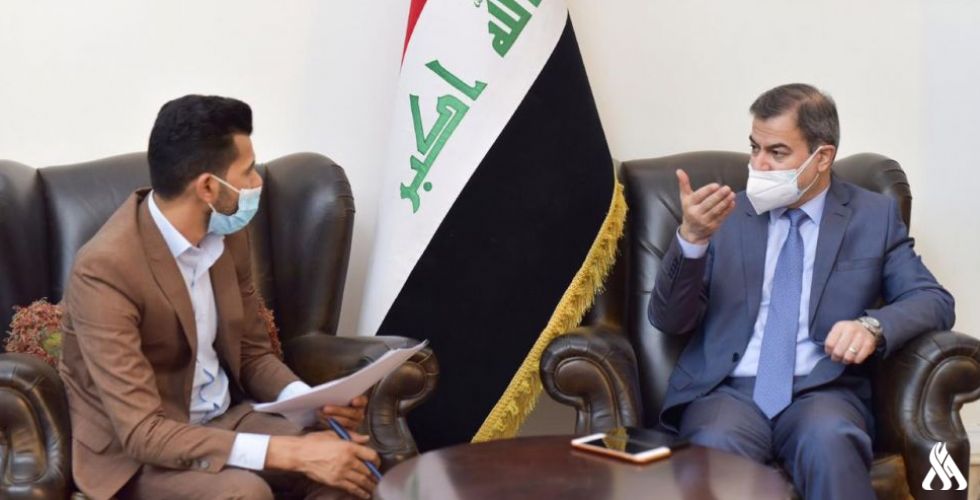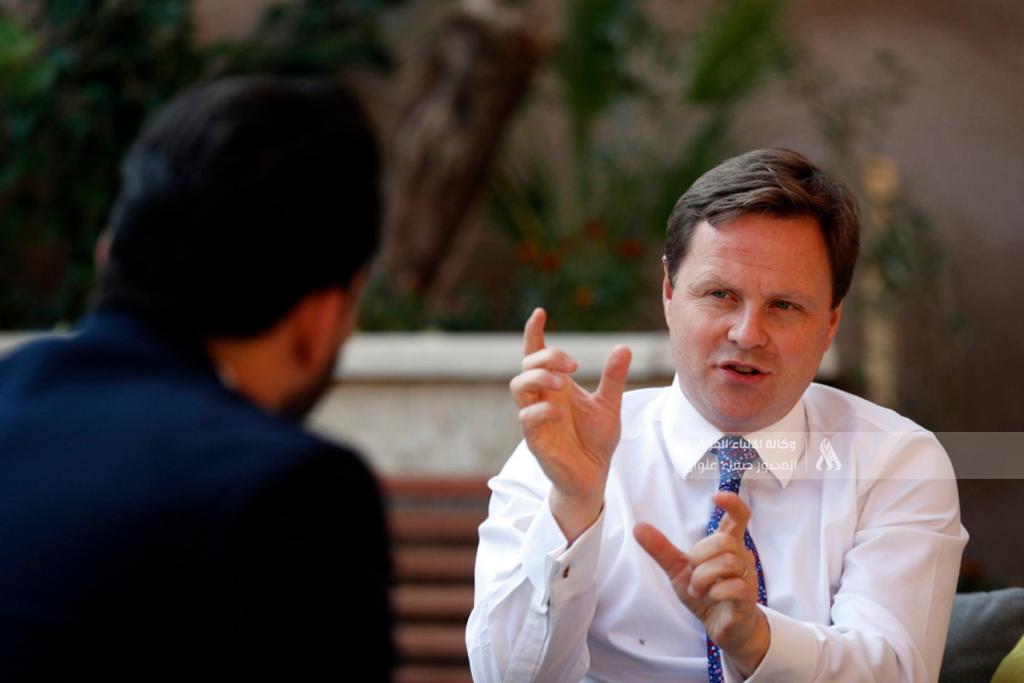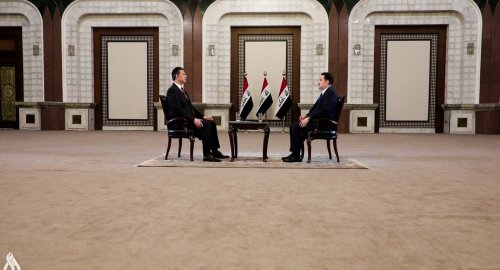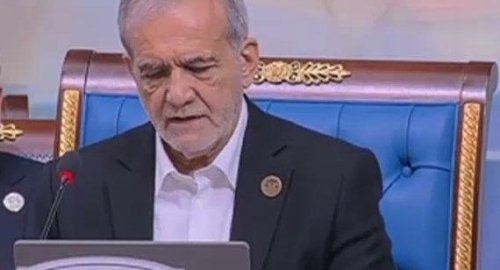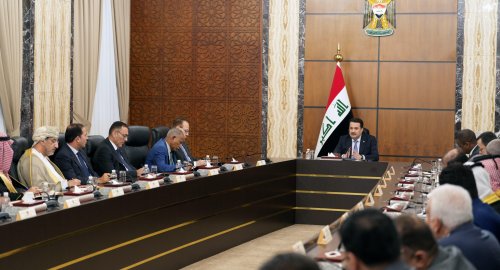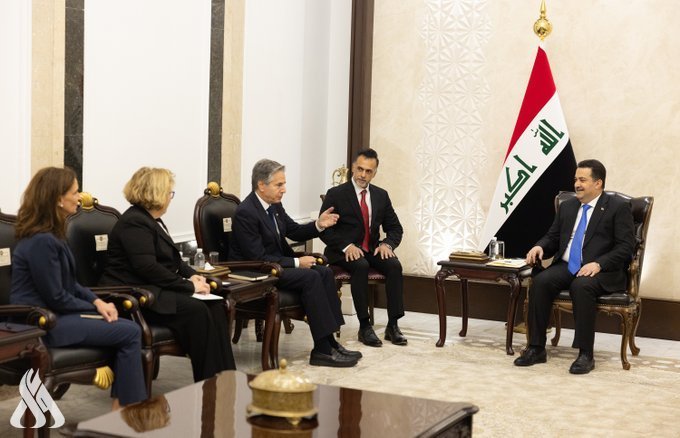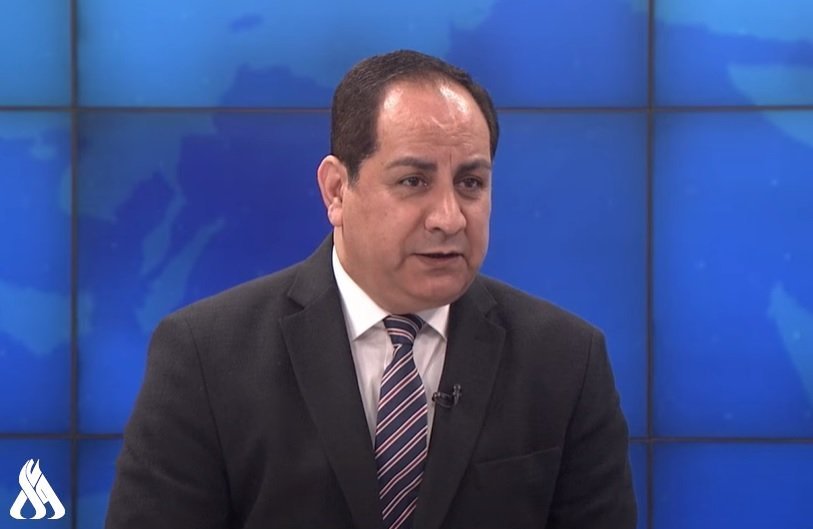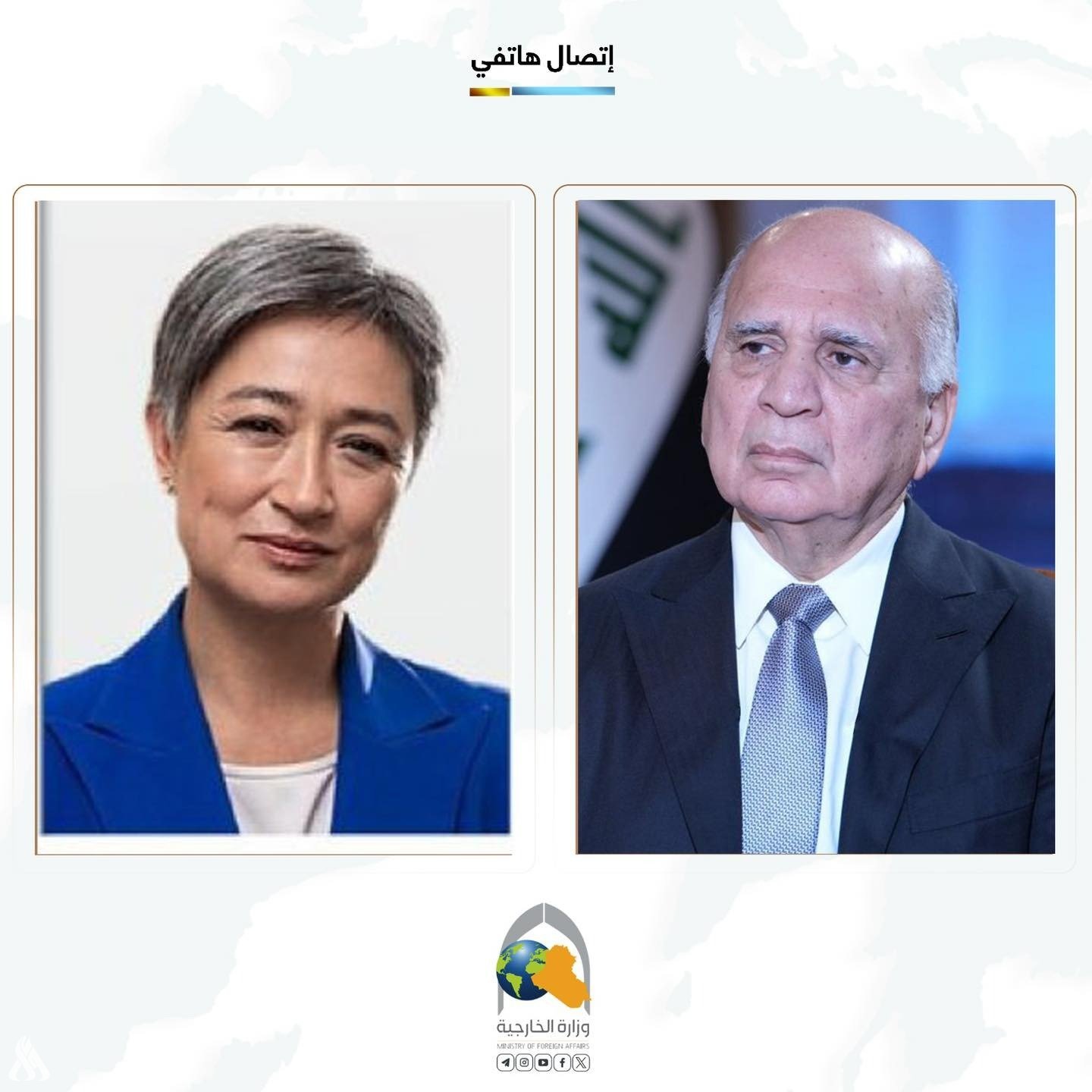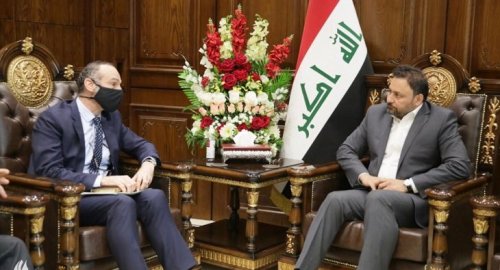
Al-Kaabi: We will not deal with national or sectarian discrimination with the remains of the missing

- 3-06-2021, 16:28
Baghdad - INA
The First Deputy Speaker of Parliament, Hassan Al-Kaabi, confirmed today, Thursday, that Iraq will not deal with national or sectarian discrimination with the remains of the missing.
The media office of the First Deputy Speaker of the House of Representatives said in a statement received by the Iraqi News Agency (INA), that "Al-Kaabi received in his office the head of the International Mission of the Red Cross in Iraq, Jean Jerome Casabianca and his accompanying delegation, to learn about the efforts and work of the mission inside Iraq," noting that " Al-Kaabi stressed that the political system in Iraq will not discriminate with the remains of the missing, not on a national or sectarian basis, whether before or after 2003, stressing that "Iraq respects its international, legal, constitutional and moral obligations and takes the human dimension in this aspect," adding that " Iraq is a democratic country and it is not in its interest to hide facts from its people, as dictatorial regimes do."
Al-Kaabi indicated, according to the statement, that "the House of Representatives, during its current session, contributed to transforming the mass graves department in order to upgrade its role in proportion to the great efforts it provided," noting that "the Martyrs Foundation and the Ministry of Health are legally and technically responsible for the issue of mass graves for what they possess." From experience in this aspect, he called on the International Red Cross mission to provide support, develop expertise, and set up training courses for Iraqi teams.
For his part, Casabianca reviewed the work of the International Mission of the Red Cross and the services and efforts it provides in Iraq, noting that "the mission is currently focusing on the file of the missing, and that it seeks to develop its cooperation with the legislative and executive institutions, especially in aspects of a humanitarian dimension."
Transport Ministry records an earthquake in Salah al-Din
- Local
- 24/12/13
Liverpool compete with Real Madrid to sign Olympique Lyonnais star
- Security
- 24/12/19
